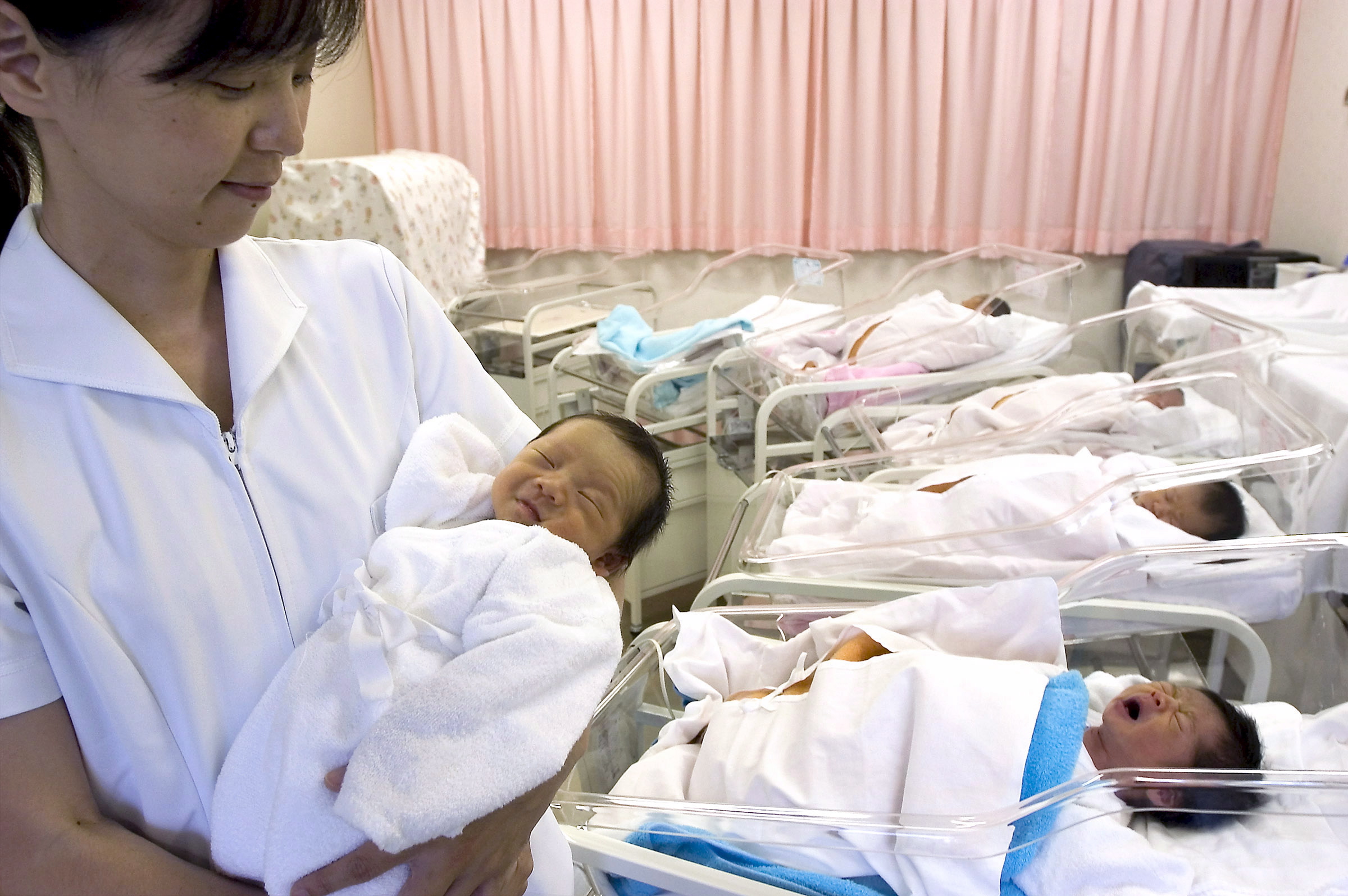Why Japan should just pay people to have children
The country has a serious demographic problem — and the best solution might be the simplest


A free daily email with the biggest news stories of the day – and the best features from TheWeek.com
You are now subscribed
Your newsletter sign-up was successful
Everyone in economics is still talking about "Abenomics." Japanese Prime Minister Shinzo Abe was elected in 2012 on the promise to use every tool at his disposal, including unconventional monetary policy, to boost Japan's moribund economic growth. It has had mixed success.
But the reason everyone is still talking about it is that Japan is us, and we're Japan.
For years, economists marveled at the fact that Japan's central bank had interest rates at zero, and yet economic growth and inflation remained stubbornly low — something which textbooks say shouldn't happen. It seemed an oddity when it was just Japan, but now it's the case of the entire rich world. If Japan can figure out a way to get out of this predicament, then maybe we can too.
The Week
Escape your echo chamber. Get the facts behind the news, plus analysis from multiple perspectives.

Sign up for The Week's Free Newsletters
From our morning news briefing to a weekly Good News Newsletter, get the best of The Week delivered directly to your inbox.
From our morning news briefing to a weekly Good News Newsletter, get the best of The Week delivered directly to your inbox.
But the problem Abenomics is trying to solve is not Japan's biggest problem, by far. Japan has a much more serious problem on its hands: The country is literally dying.
According to current projections, by 2060 the country will have shrunk by a third, and people over 65 years old will account for 40 percent of the population. Already, the country is selling more adult diapers than infant diapers.
To say this is unsustainable is a euphemism. The country is quite simply dying. And it seems on track to go gently into that good night.
There's only one way for Japan to reverse course: It must boost its birth rate. A more open immigration policy might also help, but aside from the political and cultural problems inherent in immigration, immigrants typically boost a country's demographics less than is usually thought, because their birthrates usually creep downwards.
A free daily email with the biggest news stories of the day – and the best features from TheWeek.com
This is something Japan's government occasionally pays lip service to. For example, one of the Abe government's priorities has been to get more women into the workforce, mostly to help boost the economy in the short run and win international progressive plaudits. But government officials also cite economic studies that show a positive correlation between women's workforce participation and high birth rates.
Nevermind that there are reasons to doubt the studies cited. More importantly, how small ball is that? Women's empowerment is important and misogyny in the Japanese workplace really is legendary, but this policy isn't commensurate with Japan's population problem. To repeat, the country is literally dying.
There is an alternative, though. Why not just pay people to have children? There's mixed evidence that it provides a sustainable boost to birthrates, but it makes logical sense. If you lower the price of something, you will get more of it. Over the past two decades, Japan has spent trillions of dollars on mostly wasteful pork-barrel spending projects. It seems to me that the country would be better off today if that money had been spent on bonuses for second and third children instead.
Not that it's all about writing checks. The price of housing, for example, is a huge drag on family formation. Japan is famously expensive and crowded. What would have happened if the country's brainiest people had been focusing on reclaiming land from the sea rather than making robots?
Now, pro-family policy is a tricky thing to get right, and no one has got a perfect recipe. There are many dials to push. But the whole world is oddly blind to this topic.
Demography is not destiny, exactly, but it is close to it. Everybody pretends demographics don't matter, until the impending collapse can no longer be denied, as is the case in Japan and Germany. But seeing this as a problem that government can and should tackle is impolitic. In the U.S., efforts at family-friendly tax policy are looked upon as social engineering. Today, no one in any Western democracy can imagine a politician running explicitly with the goal of boosting population, because that idea would be so far out of the mainstream.
It is almost a tautology: A nation that doesn't reproduce itself will die. The extinction of a people and culture is always a global tragedy. It's time for Japan — and the West — to wake up.
Pascal-Emmanuel Gobry is a writer and fellow at the Ethics and Public Policy Center. His writing has appeared at Forbes, The Atlantic, First Things, Commentary Magazine, The Daily Beast, The Federalist, Quartz, and other places. He lives in Paris with his beloved wife and daughter.
-
 How the FCC’s ‘equal time’ rule works
How the FCC’s ‘equal time’ rule worksIn the Spotlight The law is at the heart of the Colbert-CBS conflict
-
 What is the endgame in the DHS shutdown?
What is the endgame in the DHS shutdown?Today’s Big Question Democrats want to rein in ICE’s immigration crackdown
-
 ‘Poor time management isn’t just an inconvenience’
‘Poor time management isn’t just an inconvenience’Instant Opinion Opinion, comment and editorials of the day
